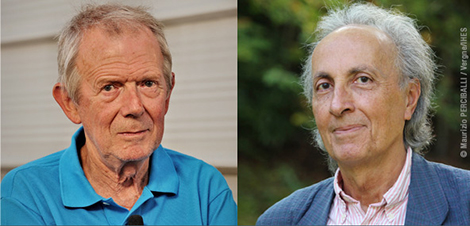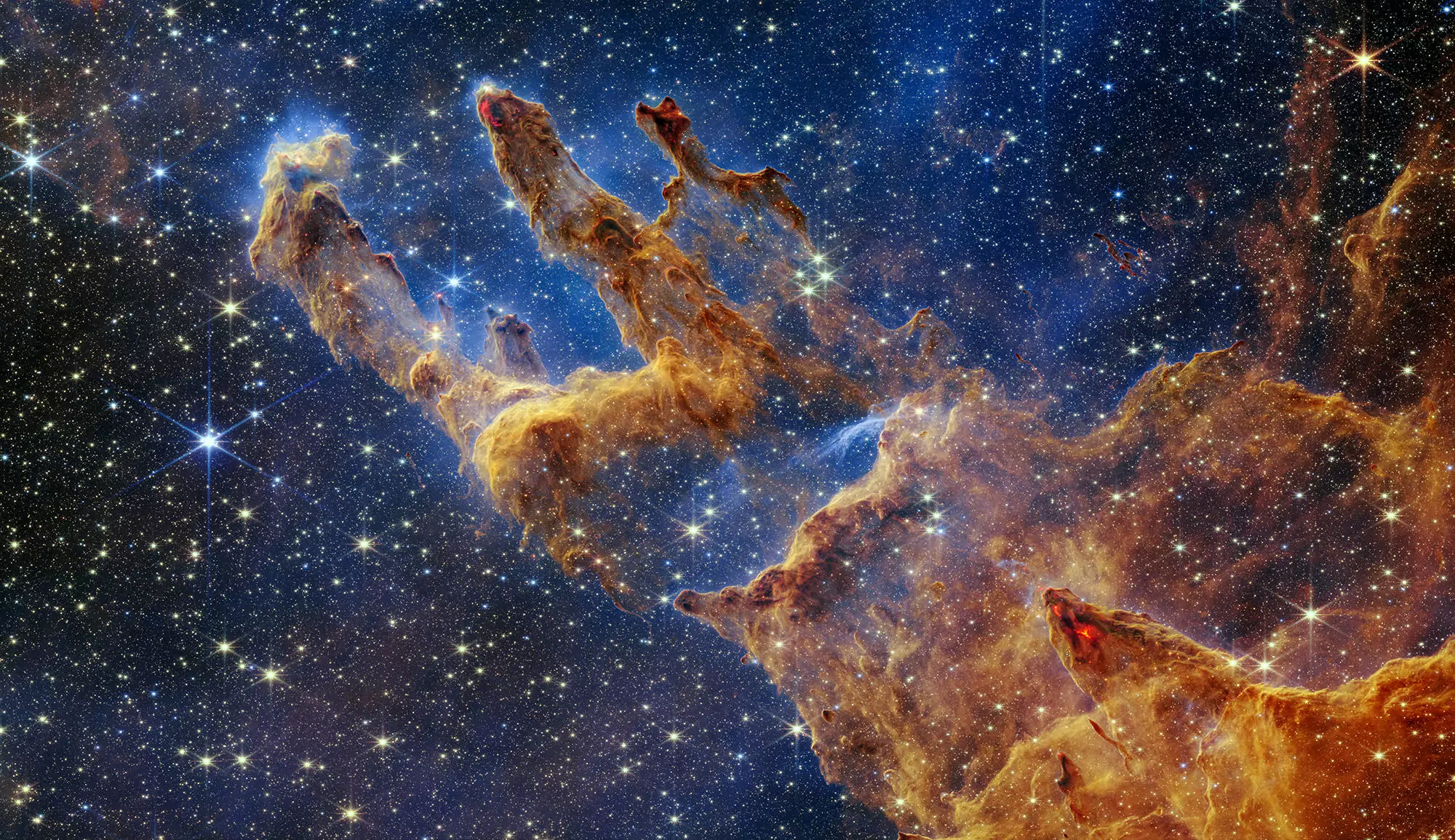
The two laureates will receive this distinction, awarded by the CNRS Directorate and which is the most important scientific distinction in France, on December 14th 2017 during a ceremony at the Collège de France.
Thibault Damour
A theoretical physicist of international renown, Thibault Damour was for 15 years a CNRS scientist at he Paris Observatory, in the of Relativistic Astrophysics and Cosmology (subsequently renamed), at the Meudon site before becoming permanent professor at the Institut des Hautes Etudes Scientifiques (IHES) in 1992.
During this period, he carried out precise general relativistic calculations on the motion of a binary system.
This work, done in collaboration with Nathalie Deruelle, who is currently at the laboratoire Astroparticule et Cosmologie (laboratory for Astroparticles and Cosmology, at the Université Paris Diderot/CNRS/CEA/Observatoire de Paris), showed for the first time that gravitational waves exist, via observations of a binary pulsar by the radioastronomers Russell Hulse and Joseph Taylor (1993 Physics Nobel Prize winners).
It was also at the Paris Observatory that Thibault Damour began, together with Luc Blanchet,( currently at the Institut d’Astrophysique de Paris), fundamental work on the so-called "post-newtonian" modellingdes of astrophysical sources of gravitational waves, work which is crucial to the analysis of gravitational wave signals by the
LIGO-VIRGO collaboration.
Alain Brillet
Alain Brillet is a visionary and leader in the development of gravitational wave detectors.
A specialist in the keying of lasers to atomic or molecular standards and their use for the interferometric detection of gravitational waves, he is one of the fathers of the European Virgo instrument.
This prestigious award highlights ultra-precise measurements.
Alain Brillet is currently a CNRS research director at Artémis (CNRS/Université Nice Sophia Antipolis/Observatoire de la Côte d’Azur), one of the 50 laboratories which are members of the FIRST-TF "laboratoire d’excellence" which englobes the principal French actors in the domain of time and frequency measurement.
